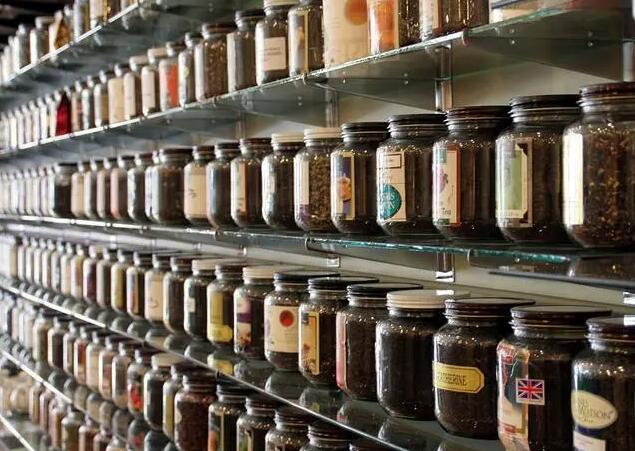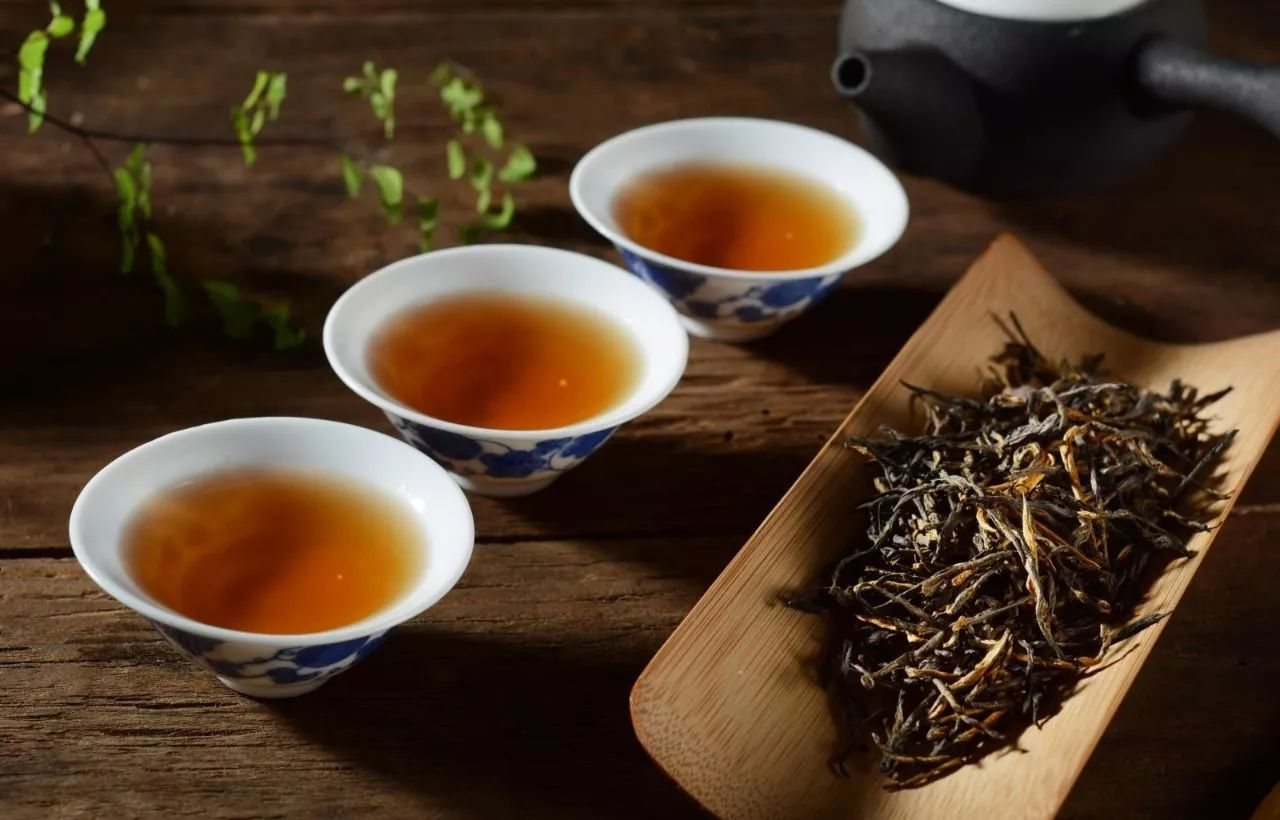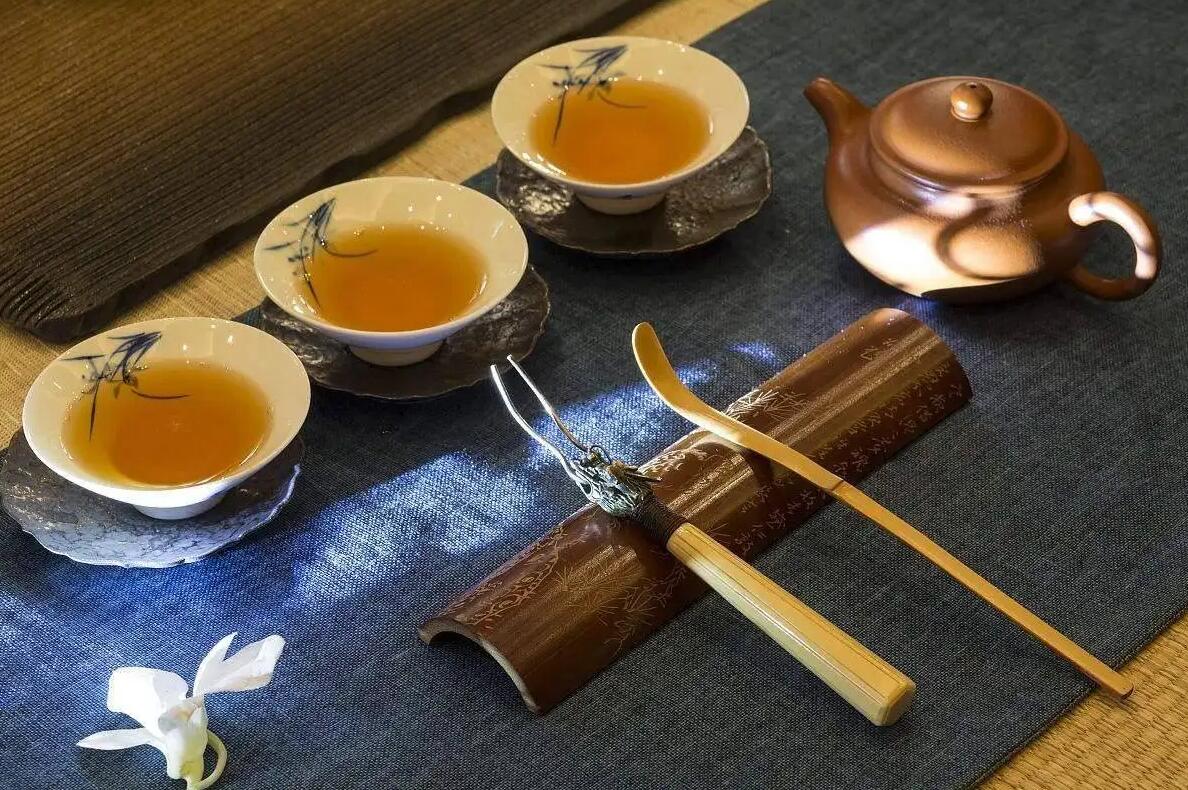Da Hong Pao is not only the most famous of Wuyi teas, it is also considered the best. It was given as tribute through successive dynasties, and throughout each Da Hong Pao was known as the "King of Tea". Later, cuttings were taken and second, third and even fourth generation farms of Da Hong Pao began cultivation. However, the original trees have been maintained these centuries in their pristine beauty, and first generation Da Hong Pao is still produced today. It is very difficult to come anywhere near this celestial tea, and to own some would make one a modern-day emperor. In celebration of the seventieth anniversary of the Hong Kong Chinese Firm Assoc., the Wuyi Shan City Government agreed to offer twenty grams for an auction held on December 12, 2004. It was only the third time that original Da Hong Pao had ever been sold, and the only time outside of the Mainland. It was a historical event that many tea lovers would never forget.
The original Da Hong Pao trees are more than 350 years old. This tea has never been for sale. It has instead been offered to leaders of government, emperors and kings, dignitaries from abroad and religious leaders. Master farmers and tea experts volunteer to gather, process, and roast the magnificent tea by hand in the traditional fashion. To them it is a great honor. In the end, there is less than 500 grams produced each year. A record of tribute tea from the emperor Qian Long in the middle of the Qing Dynasty shows that there were twenty catty (jing) of Bi Luo Chun, thirty catty (jing) of Long Jing and only 8 tael (liang) of Da Hong Pao. Even the emperor could only afford eight tael of this exquisite tea.
Da Hong Pao has been sold only twice before:
In 1998: The International Wu Wo tea gathering was held at Wuyi Shan and for the first time the Wuyi City Government offered first generation Da Hong Pao for auction. Like the more recent auction, they also offered 20 grams. A businessman named Mr. Xu purchased the tea for 156,800 RMB (app. 20.000 USD).
In 2002: In celebration of the Canton Tea Culture Festival, the Wuyi City Government again placed 20 grams up for auction. The Nan Hai Yu Cun Wine Shop purchased the tea for 180.000 RMB (app. 23,000 USD).
Before the Hong Kong auction began, the performers from Wuyi Shan Tea Art Team displayed the tea, discussed its history and even brewed a little for a lucky few. Even though it was only 20 grams, this tea is considered a national treasure. It was therefore wrapped up in many layers of elegance, fitting for a tea that descended from heaven according to legend, a total of five layers of packaging altogether. The outermost wrapping was handmade yellow silk, traditionally only worn by the emperor. The second was a hand-carved and fashioned hardwood box in a pyramid shape, gilded with 24-karat gold characters and a plush spun silk interior. Inside that was another, smaller wooden box with the official Wuyi seal upon it, and inside that lay yet another wooden box made of Chinese yew. Finally, the tea itself was carefully resting in a small metal tin with a ribbon and seal. The audience must have imagined how nice it would be to have such a treasure in one's collection: could this precious tea ensure health and longevity as it had done in the folk stories?
The auction began at 80,000 Hong Kong Dollars (app. 10,000 USD) and was raised by $2,000 increments each time. While the price was below 100,000, the competition was too vigorous for the auctioneer to even keep up, but after that mark the bidders dropped off until only three remained. After about twenty minutes and forty-three raises, a real estate agent from Shanghai, Miss Jiang, won the auction and took home the tea for 166,000 HKD (app. 21,000 USD) The tea was worth far more per gram than gold. Miss Jiang said that she is a devout Buddhist, and would first offer the tea to the Tian Xing Yong Le Temple near its origin. She said she had no plans to steep the tea anytime soon. She recently purchased two tickets to Wuyi to travel and make offerings to the original trees.
Watching the auction, a normal person can't help but wonder if this amazing tea is really worth the exorbitant price. It is one of the most famous teas of all time, reputed to have the power to heal and increase life, but one could buy a lot of good tea at that price. Perhaps worth is relative. Can a painting made by a master be over-valued? Perhaps first generation Da Hong Pao is also priceless and worth any amount, though it remains beyond the average person's budget. The fact that the tea is rarely ever sold also says something for the integrity of the tea and those that care for it. For a tea lover, it is perhaps enough just to visit the original teas in Wuyi, take some photos and wonder. After all, a little amazement and myth can glimmer through the edges of a tea room for a long time.



